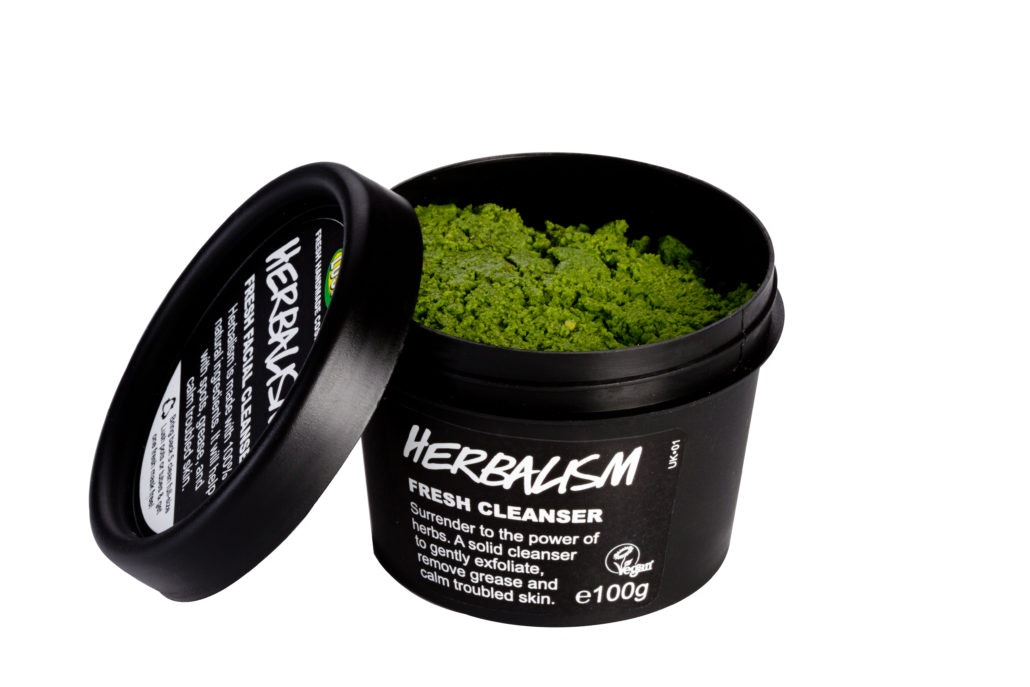What is Greenwashing? Definition and Meaning
You’ve probably run into the derisive term “greenwashing,” but if you haven’t, here’s a short definition:
Greenwashing is a somewhat conniving practice by companies that pretend to be eco-friendly and in favor of sustainable production, but in reality, they’re not making any effort to reduce their own negative impacts.
Greenwashing is mainly done through “green” marketing, which rides on buzzwords like “reduced plastic” and “natural ingredients.” But the sad truth is that it’s all just marketing – there is no proof behind the intention to do good.
Since it seems that the wheels of doom are languidly spinning towards irreversibility, greenwashing is a disgraceful act where companies deceive customers and are deliberately ignorant of the broader implications of their businesses. The sole aim of greenwashing is to present the company as green without investing money and effort into environmental protection.
Tsk. Tsk. Tsk.
The 7 Sins of Greenwashing: Examples to Help You Navigate Murky Green Waters
Over the years, many brands have been caught using various types of greenwashing, some of which are growing ever more sophisticated. While some have been stopped, others have evolved to hide the damage they’re making with sneaky tactics. Most of these have been found guilty of the seven sins of greenwashing.
The Sin of Hidden Trade-Off
The sin of hidden trade-off happens when a company introduces a seemingly greener solution to a problem, but this very solution causes problems of another kind. For instance, many companies (Nestlé, Colgate, Palmolive) claim to be family-friendly, but they obtain palm oil from regions clearly linked to violence against palm-oil workers and even the deaths of children. Similarly, McDonald’s replaced their plastic straws with paper ones, but these were non-recyclable (whereas, ironically, plastic is).
The Sin of No Proof
This is committed by companies that claim to have altered their practices to be more environmentally friendly, but there is no conclusive evidence to support their claims.
The Sin of Vagueness
These companies resort to green PR without ever specifying how, when, or where they will change their policies. Instead of direct action, these brands will use terms such as “green” or “sustainable,” but they will never clarify in which contexts they mean it.

Sure, soap is green … but what else?
The Sin of Worshipping False Labels
Being eco-friendly is not all about pretense – there are many certifications one should obtain in order to be taken seriously. The problem is that companies have been known to falsify certifications. To avoid falling for their scams, look for some of these certifications: Fair Trade, LEED, WELL, Energy Star, or Green Seal. For a comprehensive list of green certifications, check out Eco Label Index.
The Sin of Irrelevance
Sometimes companies will stamp a buzzword onto their packages to give a sense of sustainability despite that label being completely irrelevant. For instance, chlorofluorocarbon has been banned for several decades, but some companies will still proudly display CFC-Free labels to appear more appealing than their counterparts.
The Lesser of Two Evils
Between the devil and the deep blue sea, apparently dumping trash in the said sea is the better option. Companies doing this will assert they have changed something for the sake of the environment, but quantitative and qualitative surveys are likely to prove them wrong. Burger King claimed to have reduced methane emissions by 30% by changing their cows’ diet, but research shows that the actual number is closer to 3. I wish I could say someone had made a typo, but you and I both know it’s not.
The Sin of Fibbing
See, I don’t know why we’re going for such a colorful word like fibbing. The fact is that these are fat lies. Fashion industry brands, including H&M, like to market their sustainable practices, but these practices are nothing more than crass fabrications with extreme damage done to the planet through their production. Similarly, Toys ‘R Us has rebranded itself as green by adding reusable shopping bags to its stores. One thing they forgot? To de-toxify all their plastic toys. But we are sure, beyond the shadow of a doubt, that this oversight could have happened to anyone. I mean … who’d suspect that a plastic toy maker causes any damage to the environment.
Calling Spades … Greenwashing Companies?
If we’re debunking some of the greenwashing myths, our moral duty is to call out companies that deserve no vindication. Greenwashing is a sin in itself, but those perpetuating it deserve to be made known.
- IKEA. Alas, our favorite furniture puzzle-maker has been found guilty of improperly logging beechwood used in their chair production. The beechwood was illegally obtained from Ukraine. Like many of us, if you love getting lost in IKEA, make sure to read the labels on their products carefully.
- Shell Energy. If you don’t drive regularly, maybe you’ve not yet been tricked by Shell, but I might have some bad news for car owners. Shell has rebranded itself as the green company, but that doesn’t change the fact that they’re the fourth greatest polluter on Earth. Also, Shell wants to conduct seismic surveys off the Wild Coast of South Africa to look for oil and gas under the seabed. I don’t need to tell you how detrimental this will be to marine life and ecosystems. South Africans are currently trying to fight this, but Shell is a damn big company, and sadly, money talks. If you’re interested, look out for petitions on this issue.
- Coca-Cola. I don’t know why I’m talking about the fourth polluter when the world’s number one lives rent-free in many homes. Coca-Cola and all its adjacent products are guilty of overflowing the world with plastic packaging. And yet they still had the audacity to run the “World Without Waste” campaign. Needless to say, it was not received well.
- Starbucks. Another one of those straw-replacing faddists. In 2018, Starbucks introduced a straw-less lid that turned out to have more plastic than the old ones mixed with straws! They tried to mitigate the situation by stating that their new lids were made of recyclable plastic, but the fact remains that less than 10% of world plastic is actually recycled (and these new lids would most likely end up in trash bins on the sidewalk, anyway).
- Lush. I must admit, I am baffled at the excitement crowding around this company. They’re shamelessly overpriced and brimming with buzzwords like “natural ingredients” and “eco-friendly.” Tough chance! Most of their products are crammed with synthetic fragrances and sodium laureth sulfate, which can cause hair loss and allergies. Lush advertises that they diminished their plastic use by 35% … but that leaves 65% still in use. Additionally, they are known to mistreat and underpay their employees. I would say – stay away!

Just because it mentions herbs and freshness, it doesn’t mean it’s actually good for you!
Let’s Add Some Common Greenwashing Brands
Fashion brands like to jump on the environmental bandwagon especially since they are so in your face all the time. But they don’t like paying for their tickets – it’s much easier to just hang onto the train than be a decent brand and invest into it.
- H&M, Zara, SHEIN. Fast fashion is one of the biggest polluters on the planet. For example, Zara claims to have a “take-back” system, which is overt virtue-signaling that you should recycle clothes you haven’t worn much. However, most of the returned goods are just dumped in unknown locations (most likely developing countries that already have a textile overload problem).
- Zalando. Decent prices for … tons upon tons of plastic, wrapped in more plastic. They even had leggings made out of “recycled polyester” that were 100% plastic with no indication of how much of the product was recycled. Not to mention the chemical industry that went into that polyester transfiguration.
- Adidas. Who hasn’t had a lovely pair of sports sneakers from Adidas at some point in their lives? In recent years, they have been pushing sports gear like jogging shirts and sweaters from recycled polyester. The problem? More waste in the long run as these cannot be recycled further. Not to mention energy waste to recycle polyester. The reality is that they didn’t want to invest in natural materials.
- Nike. In 2011, Nike ran a campaign claiming that they’d reused tons of plastic bottles and turned them into sportswear. Again, like Adidas, these could not be recycled further and most likely ended up in huge dumps where they had to be incinerated. This just added what we needed into the air – more smoke.
If you’re unsure about a brand, make sure to check it against the Greenwash database!
Greenwashing Tourism – No One is Safe
Indeed, greenwashing is on the rise, and many tourist agencies still haven’t made up their minds on how they are contributing to the preservation of natural resources and the undisturbed flow of economy in local communities.
It is more difficult to gauge how much tourist agencies and companies are (NOT) doing to save our planet, but as a traveler, you should carefully look at each of your choices.
To start us off, let’s get acquainted with the term “eco-tourism.” Eco-tourism is all about traveling to places undisturbed by major chain hotels, spa reserves, and questionable practices that take away from the local community. It’s a mode of travel where you try to live as sustainably as possible, making deliberate choices to reduce your impact. In other words, you don’t want to leave a trace where it doesn’t belong.
With many people opting for eco-tourism out of ethical reasons, companies have, of course, seen their own profit possibilities in the branch, which has resulted in, you guessed it, increased pollution all over. To avoid falling for a greenwashing tourism scam, always ask (and google) the following questions:
- Can you find lodgings offered by locals (Airbnb, Booking.com, Hostelsworld)? Avoid big hotels and resorts as they definitely have many environmental questions to answer.
- Would your presence there in any way impact the local community? If you’re volunteering abroad, consider whether your engagement takes away from the locals in any way (e.g., job openings).
- Check if air travel is at least trying to be sustainable. The truth is, we are far from complete eco-friendliness, but some companies are actively trying to offset their carbon footprint (Lufthansa, Air France, British Airways, Virgin Atlantic, Virgin America, EasyBlue). To avoid greenwashing, check out environmental pledges offered on your airline’s website. If there are none to be found, you should pick someone else.
- Would you be willing to shop and eat locally? Support local artisans, vendors, and restaurants.
- Check out our article on sustainable travel to learn how you can see the world without harming it!


Recognizing the Buzzwords of Greenwashing
I cannot send you off without specifying some common phrases and buzzwords greenwashing companies have been using. If you spot these, make sure to check labels in detail or even screen the company’s website to see how they’re keeping their word (if at all). Here are the notorious ones:
- green technologies,
- eco-friendly,
- oil-free (to reduce oil content, lots of energy is wasted, and harmful chemicals are released),
- herbal, mineral, natural,
- plant-derived,
- organic (this one has the moths to the flame effect, but you’d be well-advised to double-check),
- healthy (foods marketed as healthy tend to be even worse for your health as they’re often loaded with sugar replacements, mystery ingredients, and flavor-enhancers).
The list, of course, is far from conclusive, but some of these words are bound to catch your eye. To ensure you’re not being tricked, always screen brands and products that are pointedly parading the green flag because, unsurprisingly, they have the most to hide. Go green or go home!
Image sources:








